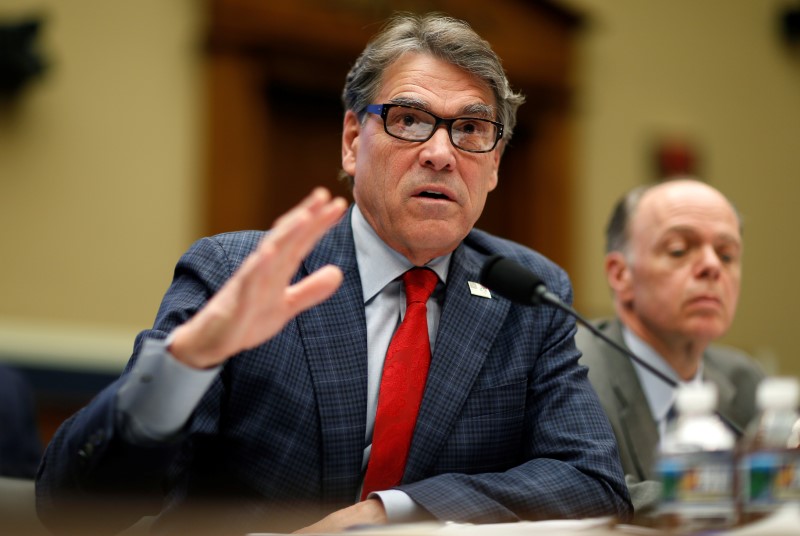Investing.com’s stocks of the week
WASHINGTON (Reuters) - U.S. Energy Secretary Rick Perry said on Monday a deal between global oil producers to boost crude output reached last week may not be enough to relieve global oil markets that are stressed by supply constraints.
The Organization of the Petroleum Exporting Countries and non-OPEC countries reached an agreement on Saturday to moderately boost production after consuming countries including the United States had urged them to produce more. Saudi Arabia said the agreement would likely result in about 1 million barrels more oil output per day, or about 1 percent of global oil supplies.
The price of oil (LCOc1) traded in London fell on Monday after the wider agreement, by $1.15 to $74.40 a barrel. On Friday they had risen $2.50 to $75.55 a barrel after OPEC only countries came to their own deal to boost output.
"Obviously we've got a market that is stressed from a standpoint of supply," Perry told reporters. The rise in prices on Friday showed the agreement "may be a little short" of what is needed.
There are difficulties in getting crude oil to market in the Permian Basin in Texas and New Mexico, in Venezuela, which is struck with political turmoil, and in Angola, Perry said.
In addition, the United States is asking oil consuming countries to reduce their purchases of oil from Iran, an OPEC member, as Washington re-imposes sanctions on the Islamic Republic.
Perry said the United States would do everything it can to keep gasoline prices in check.
But he said the Strategic Petroleum Reserve should only be used for supply emergencies and not as a tool to manipulate markets. Several sales of crude oil from the reserve have been mandated by laws passed by Congress to help balance the federal budget.
